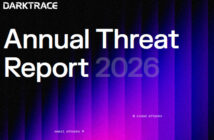
The City of Adelaide has awarded TPG Telecom Limited the contract to supply and run a 10 Gigabit fibre-optic data network across the city.

” Lego Adelaide demonstrates smart city potential Picture: James Baker. Photo: Keryn Walshe / South Australian Museum “
The first phase of the Ten Gigabit Adelaide project is expected to commence in early 2018 with the goal of linking the entire CBD with ultra-high speed data transfer capability within a few years.
The project, which will be rolled out beside the nation-wide NBN program, will complement the South Australian Government’s GigCity project linking Adelaide’s research and technology hubs to make the capital attractive to international businesses.
Adelaide Lord Mayor Martin Haese said the plan to connect the city with fibre-optic cable was a “game changer for Adelaide.”
“This technology will be a boom for local businesses and other organisations but will also attract business from interstate and across the globe,” Haese said.
“Adelaide is consistently ranked the fifth most liveable city in the world and, in addition to our comparatively affordable cost of living, we will soon have a technological advantage which will make us an even more compelling place to set up a business or regional headquarters.”
According to the partnership plan between TPG and the city council, Ten Gigabit Adelaide access points will be installed for free in buildings in the CBD and North Adelaide and the data packages offered to businesses by TPG would be competitively priced.
The South Australian government switched on its $7.6 million ultra-fast GigCity internet network in August this year, making Adelaide the first Australian capital to become a Gig City.
The state’s GigCity scheme uses the existing SABRENet fibre optic network to deliver Internet services to five key innovation hubs in the CBD and Adelaide suburbs including the Tonsley Innovation Precinct and TechInSA.
The City of Adelaide’s 10 Gigabit plan is aimed at attracting more companies to set up in Adelaide.
Haese said a recent report by the South Australian Centre for Economic Studies found that Ten Gigabit Adelaide could generate between 1,400 and 2,500 jobs over the first six years of the fibre infrastructure’s life.
The project will also help make Adelaide into a Smart City, according to City of Adelaide Chief Executive Officer Mark Goldstone.
“It provides the backbone for a wide range of smart city projects to be carried out far more efficiently – and savings made in this area will free up funds to spend on other services and public infrastructure,” said Goldstone.
Last year the South Australian Government signed up with Smart City initiator and Internet application development organisation US Ignite, making Adelaide the first city outside of the United States to become a US Ignite partner.
US Ignite applications include SIGFOX, which provides global cellular connectivity for the Internet of Things with low energy consumption, B-Scada’s City Sensing Platform for collecting city system data for real-time analysis, and Cityzenith 5D Smart City to help develop and deploy standards-based solutions.






